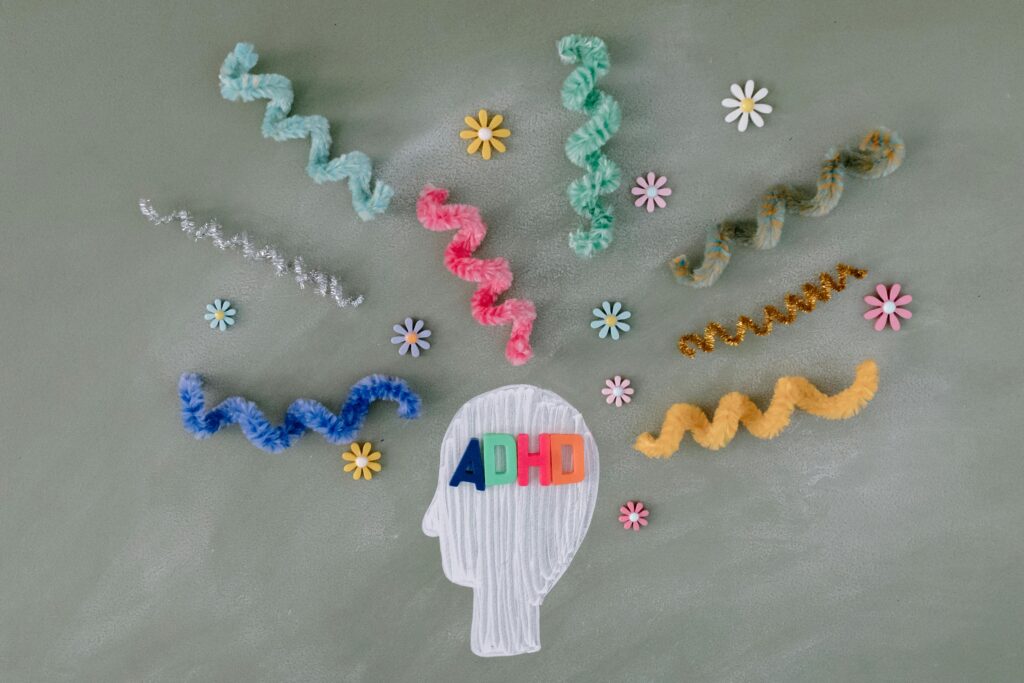ADHD (Attention-Deficit/Hyperactivity Disorder) is a neurological condition that affects millions of people worldwide, yet it’s often misunderstood. For me, this topic is deeply personal because my son has ADHD. Navigating this journey has taught me so much about patience, resilience, and the importance of informed support.
ADHD isn’t just about hyperactivity or a lack of focus, it’s a complex condition that involves challenges with executive functioning, emotional regulation, and impulse control. However, ADHD is not a mental illness to “cure” with medication; it’s a superpower. When you learn to harness and master it, you become unstoppable.
What Is ADHD?
ADHD is a developmental disorder that typically manifests in childhood but can persist into adulthood. The exact cause of ADHD isn’t fully understood, but it’s believed to involve a combination of genetic, environmental, and neurological factors.
ADHD is often categorized into three types:
- Inattentive Type: Difficulty sustaining attention, often appearing forgetful or disorganized.
- Hyperactive-Impulsive Type: Fidgeting, restlessness, and acting without thinking.
- Combined Type: A mix of inattentive and hyperactive-impulsive symptoms.
It’s crucial to remember that ADHD isn’t a result of bad parenting or laziness; it’s a legitimate medical condition that requires understanding and tailored support.
Our ADHD Journey: From Struggles to Breakthroughs
At one point, living with ADHD felt overwhelming. My son often forgot his homework, his room was perpetually messy, and he struggled to remember house chores. As a parent, it was frustrating and exhausting to constantly remind him of tasks and try to keep things on track.
Adolescence, in particular, was a challenging time. However, implementing specific strategies and reframing our perspective on ADHD became life, changing for both of us. These changes didn’t just help my son stay organized, they also brought peace and structure to our home.
Practical Tips for Managing ADHD
- Recognize Energy Patterns
Pinpoint when energy peaks and focus on intense, short bursts of work during those times. - Take Effective Breaks
Regular breaks prevent burnout and maintain consistency. - Simplify with Systems
Tools like Notion and Trello organize ideas with visual boards, lists, and reminders, keeping tasks manageable and clear. - Eliminate Distractions
Silence notifications, tidy your workspace, or use noise-canceling headphones with instrumental music to focus better. - Leverage Hyperfocus
Use bursts of intense concentration to dive into tasks you’re passionate about and achieve extraordinary results. - Create a Supportive Environment
Surround yourself with understanding people who encourage your process and avoid those who stifle your potential.
Reframing ADHD as a Strength
Let’s change the way we think about ADHD. It’s not a problem—it’s a unique way of thinking that allows your brain to work fast, generate creative ideas, and envision possibilities others may never imagine. Here are some practical tips that transformed our lives:
By reframing ADHD as a superpower and not a disorder, you unlock the potential to achieve extraordinary things.
The Role of Supplements in ADHD Management
The Role of Supplements in ADHD Management
Supplements can help manage ADHD’s more challenging aspects by balancing brain chemistry. Here are some worth exploring:
- GABA (Gamma-Aminobutyric Acid): Calms the nervous system, promoting relaxation, reducing anxiety, and improving sleep quality.
- Magnesium L-Threonate: Specifically supports cognitive function and memory, helping with focus and reducing hyperactivity.
- Omega-3 Fatty Acids: Found in fish oil, these aid brain function and reduce inflammation.
- Zinc: Regulates dopamine, improving attention and impulse control.
Another supplement worth mentioning is Quietum Plus, designed to improve overall brain health, focus, and auditory processing. While primarily known for its support in hearing, it also complements mental clarity, which can benefit those with ADHD.
Before introducing any supplement, always consult a healthcare provider to ensure safety and effectiveness tailored to your needs.
Why Talking About ADHD Matters
Sharing my story and knowledge about ADHD is important because it fosters understanding and reduces stigma. Many families feel isolated or overwhelmed when navigating this journey, but you’re not alone. ADHD doesn’t define a person’s potential, it’s just one part of who they are.
When managed well, ADHD becomes an asset rather than a challenge. By focusing on strengths, building supportive systems, and using tools like supplements when necessary, individuals with ADHD can thrive in ways others may never imagine.
Final Thoughts
Living with ADHD, whether as a parent or an individual, can be challenging, but it’s also an opportunity to grow and connect in meaningful ways. For me, this journey has taught me to see the world through my son’s eyes, embracing his creativity, energy, and unique way of thinking.
If you’re looking for more resources or tips, I invite you to explore my blog, where I share insights, research, and personal experiences about ADHD and wellness. Together, we can create a supportive community that uplifts and empowers each other.
With love Ana!

